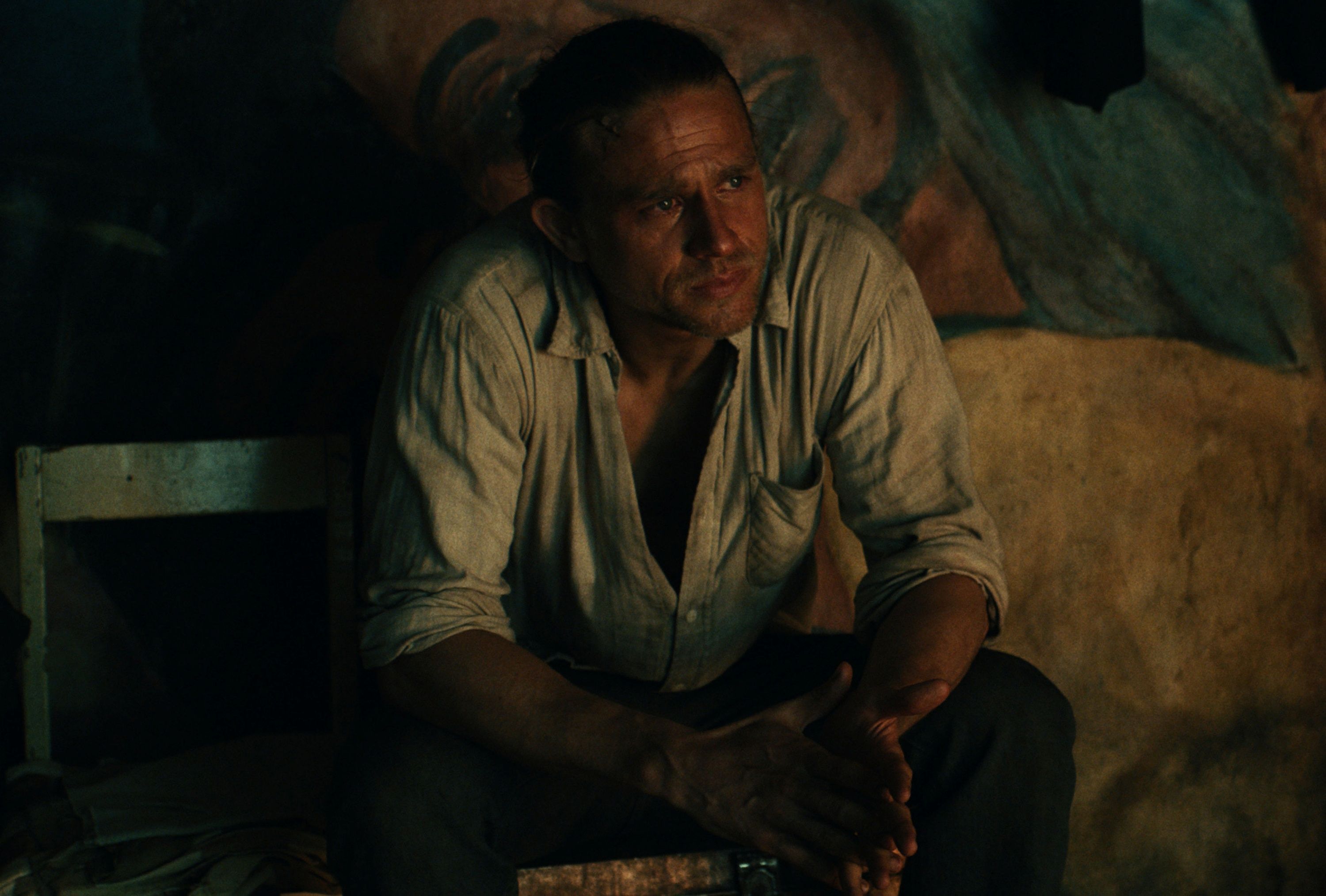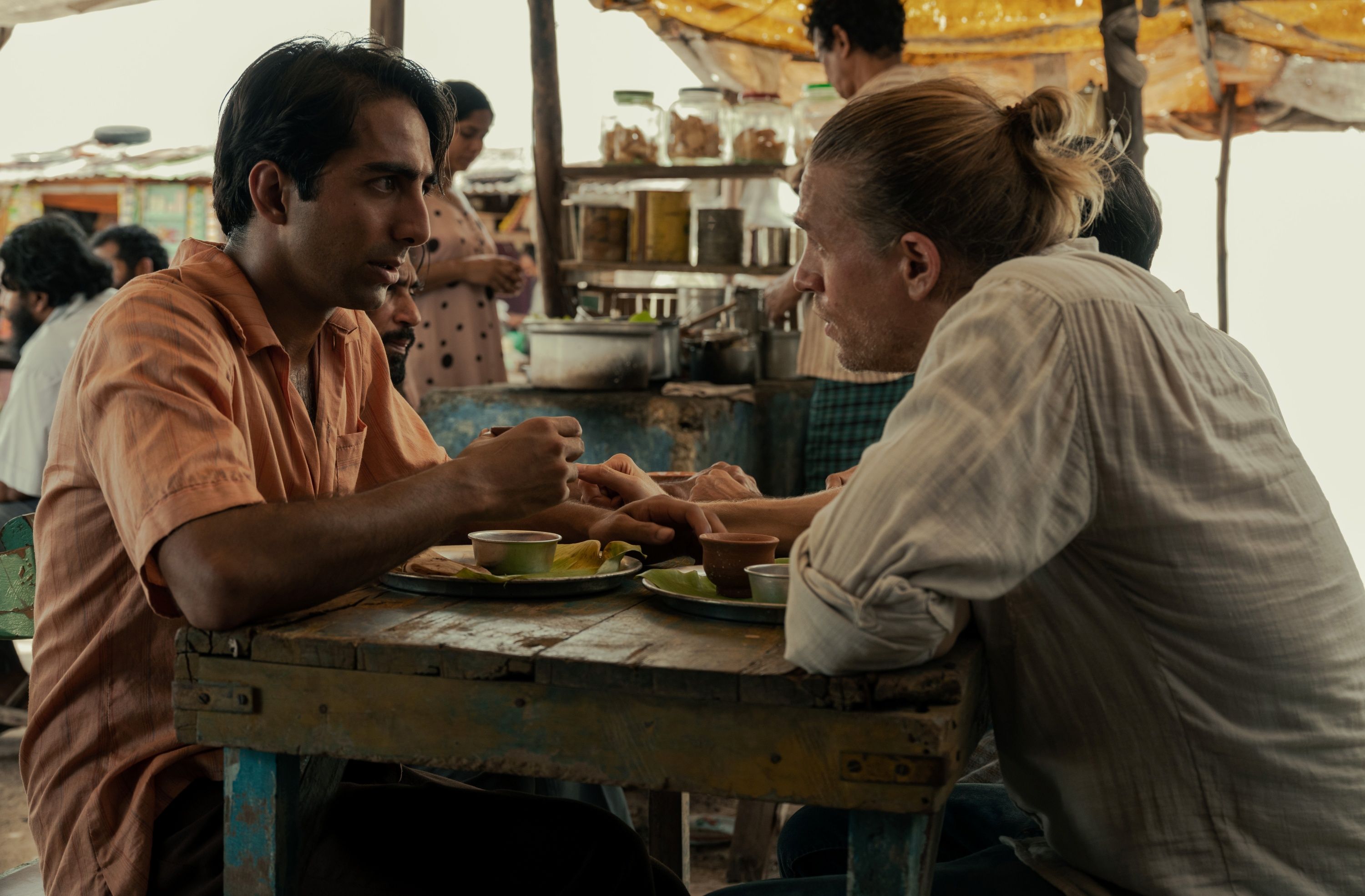Charlie Hunnam & Shubham Saraf on Why Shantaram Is So Important to Them
From showrunnner Steve Lightfoot (The Punisher) and based on the best-selling novel by Gregory David Roberts, the Apple TV+ original series Shantaram follows Lin Ford (Charlie Hunnam), a fugitive from Australia who’s looking to get lost in Bombay, India in the 1980s. The chaos of an unfamiliar city leaves Lin in need of a friend and confidant, which he finds in Prabhu (Shubham Saraf), who understands the cultural norms and social hierarchy in a way that can help Lin navigate his survival.
During this interview with Collider, co-stars Hunnam (who’s also a producer on the project) and Saraf talked about how this story evolved into a TV series, why this story was so important to each of them, playing someone like Prabhu, for whom salvation lies in service, finding the dynamic between their characters, the lessons they learned on the first season, and their hope that they’ll get to continue telling this story.
Collider: Charlie, as I understand it, this first came your way in the form of the book and it hadn’t gone into development as a TV series yet. How many years ago was that, and what was it about the story that really kept you following the project over the years, instead of just giving up on it?
CHARLIE HUNNAM: So, I was given the book about seven years ago and fell madly in love with it, as a novel. It’s a pretty spectacular piece of writing, very clearly lead-begging to be adapted to the screen. The problem was that it was owned by Warner Bros. for many years. At the time, it was a film-centric industry, so for many, many years, they labored to try to whittle the story down to a two-hour narrative, which I think was just impossible to do. So me, coming from television when I read the book, I was immediately thinking about it long-form, thinking you tell a story over 30, 40, or 50 hours.
The guy who gave it to me, Eric [Warren Singer], was one of our first producers, who’s still a producer on it. We just went on a journey of basically stalking Warner Bros. to see when the rights would became available. We tried to secure them ourselves, were unsuccessful, and then found out who was successful in securing them, and tried to convince them to hire us. That was the way it went.
The reason I wanted to do the project, honestly, is that it’s just an incredible odyssey of adventure, love, betrayal, criminality, gods, and everything in between. The adventure of it and the uniqueness of the environment, all of that, felt fresh and exciting to me. But then, most of all, it was just the themes. Gregory David Roberts, who’s the author of the novel, is an exceptionally bright thinker. The way he explores theology, philosophy and psychology in this book, gave us some really juicy themes to play with, if we could bring it to screen.
The character at the center of this is so interesting because he’s not a hero. He’s essentially a drug addict who went to prison, and then escaped from prison. He’s got these layers to him that make him a lot more colorful, and it also makes you re-evaluate who is supposed to be the bad guys or villains a bit differently. That makes all of the characters that much more complex.
HUNNAM: I think that’s true. I couldn’t have said it better myself.
Shubham, what was it that made you want to do this, and what was your journey like, in getting this role?
SHUBHAM SARAF: The book came into my life almost 15 years ago. I remember that I was on a plane from London to Bombay, next to my dad, freaking out, reading these pages and going, “Oh, my God, this guy gets it. This is the India that I know. He gets it. This is amazing.” I remember on that trip, I just ate that book up, and Prabhu was my favorite character. When I put it down, I dreamt of one day watching the adaptation, but thought it would be a movie adaptation. And then, 15 years later, this script comes along, it’s all top secret, shrouded in secrecy, and I was like, “I have a feeling that I know what this is.” The character I was auditioning for, they changed the name, but I was like, “I know who this is.” I just tried to enjoy it myself. I just hope it translates because I had the time of my life doing it.
Charlie, you’ve done a variety of films since Sons of Anarchy came to an end, but this is the first TV series that you’ve led since then. Had you been hesitant about doing another TV series? Was it just about finding a character that you wanted to play for a longer period of time?
HUNNAM: It was this. I was obsessed with this, and it’s taken seven years, which is basically the amount of time that I’ve been free from my contract for Sons of Anarchy. In the moments where I lost faith in this actually happening, and there were a few of those moments, I considered some other TV opportunities because I was actually very eager to get back to TV. I was proactively looking for an opportunity to get back into television. But this was the one I just always came back to. There were some things that I got really close on, that have ended up being great, but I just held the line and said, “This is the one that I really wanna do the most.” Thankfully, Apple was game for it.
Shubham, the relationship between your characters is so interesting because your character almost gets lost in his eagerness to help. Why does it seem like he’s willing to sacrifice himself to serve others in the way that he does? What do you think it is about him that makes him that way?
SARAF: That’s an amazing reading, and it’s the first time anyone bounced that back to me because it’s almost like a secret. It was a secret idea that I found really delicious when playing him because it’s something that resonates with me. As a people pleaser, that resonates with me hugely because sometimes we try to help so much that it ends up being our own folly. You get hoisted by your own petard because we are led to believe that our salvation lies in what I like to call Seva, which means service. That’s probably a central value to his life. The way his arc goes throughout the entire series, if you hold the line, and you stick to your value of love and Seva, no matter how hard it gets, no matter how complicated and impossible it gets, it ends up working out for good.
We’ve talked about this a lot, but the way we even started shooting it, it’s paralleled the arcs of the characters really well. I never knew Charlie. I’d never met him. The first day I met him was when we were filming a really key scene for our relationship, and we had no idea what to do, but we just jumped in and danced, and it all seemed to work out in the moment because we were being true to ourselves. So, thank you for coming back with that reading because that’s exactly what I’ve been playing with.
He just feels like someone who has been living his life through trying to help everybody else, and he’s really losing himself in that.
SARAF: He lives in one of the most adverse circumstances of anyone in this story. He lives in a slum. All he has to do is survive. That simplifies his challenges and his journey because he’s just got to make a buck and he’s just got to have the best time. He’s got to try and just enjoy the day-to-day experience of surviving, and how can you do that other than by relying on love and friendship? That’s one of the central messages that stains Lin, throughout the process.
HUNNAM: Yes. For all of his good qualities, Lin is pretty self-serving and self-obsessed with his narrative and his position and the tragedy of his life. Imperatively, it’s probably not as difficult, by a long shot, as Prabhu’s life has been, just over the course of the 25 or 30 years that they’ve both been on the planet, before they meet each other. And yet, Prabhu has decided that he’s going to liberate himself from himself through service. That is an essential lesson for Lin to learn, and one that he definitely does not understand, when you meet him on this journey.
After all the years of trying to get this going, are you hoping now to continue telling this story because it feels like there’s so much more story to tell?
SARAF: Desperately hoping.
HUNNAM: Yes, not only because I think it would be criminal, but it would just be very difficult for me, at this point, to not see this through and have the opportunity to tell the whole story. Listen, we’ve all been in that position before, but it would be a bitter pill to swallow. We’ll swallow it, if we have to, but I’m really hopeful that we can tell the story. I also feel, honestly and candidly, that we did some really great stuff in Season 1, and we created some areas of magic and singularity. There’s some stuff we didn’t do great, in this first season, and we learned the lessons of it. Not to pass the buck and not take responsibility, but we were navigating, at times, what felt like some fairly insurmountable challenges, to get this actually on the screen. For instance, we shot all 12 episodes in one block. On any given day, Shubham and I would be shooting a happy scene from episode one, be crying in episode five, be in prison episode two, doing whatever happens in episode seven, and then, the last scene from the finale. We also had three different directors. So, I’m excited to tell the rest of the story. I’m also excited to put the lessons we learned from this first season into place in the second season and, hopefully, just grow on what we’ve managed to establish so far.
SARAF: Amen.
Shantaram is available to stream at Apple TV+.




